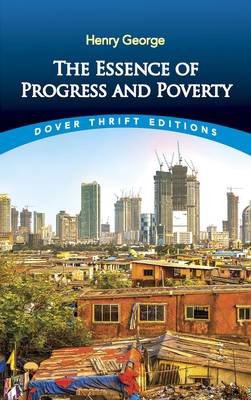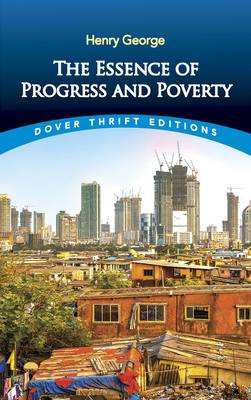
Door een staking bij bpost kan je online bestelling op dit moment iets langer onderweg zijn dan voorzien. Dringend iets nodig? Onze winkels ontvangen jou met open armen!
- Afhalen na 1 uur in een winkel met voorraad
- Gratis thuislevering in België vanaf € 30
- Ruim aanbod met 7 miljoen producten
Door een staking bij bpost kan je online bestelling op dit moment iets langer onderweg zijn dan voorzien. Dringend iets nodig? Onze winkels ontvangen jou met open armen!
- Afhalen na 1 uur in een winkel met voorraad
- Gratis thuislevering in België vanaf € 30
- Ruim aanbod met 7 miljoen producten
Zoeken
Omschrijving
In this concise text, the distinguished American philosopher John Dewey compiled excerpts from the massive Progress and Poverty to provide those unfamiliar with Henry George's work with the essence of the author's thinking on economics. In his Foreword, Dewey noted, "It would require less than the fingers of the two hands to enumerate those who from Plato down rank with [George]. No man, no graduate of a higher educational institution, has a right to regard himself as an educated man in social thought unless he has some first-hand acquaintance with the theoretical contribution of this great American thinker."
Fifteen brief chapters feature passages from George's highly influential book and examine why poverty persists throughout periods of economic and technological progress as well as the basis for economic cycles of boom and bust.
Fifteen brief chapters feature passages from George's highly influential book and examine why poverty persists throughout periods of economic and technological progress as well as the basis for economic cycles of boom and bust.
Specificaties
Betrokkenen
- Auteur(s):
- Uitgeverij:
Inhoud
- Aantal bladzijden:
- 80
- Taal:
- Engels
- Reeks:
Eigenschappen
- Productcode (EAN):
- 9780486842073
- Verschijningsdatum:
- 15/04/2020
- Uitvoering:
- Paperback
- Formaat:
- Trade paperback (VS)
- Afmetingen:
- 122 mm x 193 mm
- Gewicht:
- 68 g

Alleen bij Standaard Boekhandel
+ 11 punten op je klantenkaart van Standaard Boekhandel
Beoordelingen
We publiceren alleen reviews die voldoen aan de voorwaarden voor reviews. Bekijk onze voorwaarden voor reviews.











